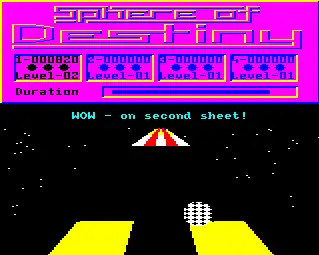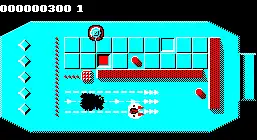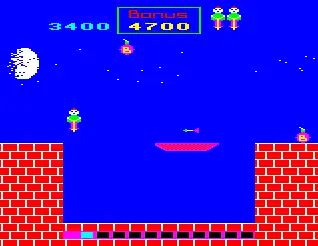beebgames.com
Last Updated 12th May 2024
The BBC Games Archive - digital memories
beebgames.com
Interview with Gary Partis
I recently had the chance to interview Gary Partis, the maker of Psycastria, Sphere of Destiny and host of others, this is what he had to say.
How did you get into programming on the BBC computers, and what made you stick with them right up until the Archimedes?

The game 'Hostages' was being written by a good friend of mine for the BBC Micro (Peter Scott) and Superior wanted an Archimedes version thus Peter suggested me! After 'Hostages', I was developing low-level driver software for the Archimedes so I began to known the machine's architecture inside-out. A game I had written for Utopia Software (Richard Hanson) for the Amiga and ST required porting to the Acorn platforms and I (as the original coder) was the obvious choice!
Of all the machines you have programmed, how would you say the Beeb fares alongside them as a development tool?
The BBC Micro had two very obvious advantages of most micros in the 80s. It had an Operating System (not a bodge of BASIC and a simple BIOS) and it had a inbuilt assembler. This allowed anyone to develop software for the BBC Micro without much additional cost for development tools. Indeed, I used the BBC Micro to develop games for the C64!
Why did you never really tie yourself down to one games company, but instead did different games for different companies?
Different companies wanted different products at different prices!
Other than your own work, what do you think is the finest game you ever saw on the Acorn 8-bit series?
This had to be 'Planetoids'. This was the first BBC Micro game I bought and at the time I was spending a fortune at the arcades playing 'Defender'. Neil Raine (the programmer of 'Planetoids') was one of my heroes!
If you could do any of your games again, which one would you change and why?

Most of them. In retrospect, any programmer could go back to a game he/she had written 15 years ago and improve upon it ad infinitum! My early stuff was written when my skills were still in an embryonic stage.
Do you still use or own a BBC computer, and if so what do you do with it?
I have a BBC Master, Turbo Co-pro and 20Mbyte hard disc in the garage. But recently I have downloaded a couple of emulators (BeebEm and Horizon) to play some old BBC games. The main reason for this was that I wanted some screen shots of some of my early work for my Web-based portfolio!
What do you think of the retro-gaming scene, would you prefer to move away from the 80's or do you think that looking back is a good thing?

The 80s produced games. The 90s produced graphics and sounds. The next millennium... Who Knows.
With most micros in the 80s being extremely limited in speed, memory and graphics, programmers had to work harder to get the same result as today which could be done in minutes/hours. Thus more thought was put into 80s games.
Why do you think that there is currently such a lack of originality in computer games, or do you think it was the same in the 80's as well?
See last point! Currently, graphics and sound effects are all the rage. How many Doom clones are there, or racing games. At least in the 80s, games had a much broader theme.
What are the easiest, most satisfying and most annoying to create features of games you produced for the acorn 8-bits?

- Easiest - The sound effects. The BBC Micros sound chip was limited (compared to the C64 et al) but some good sounds could be produced.
- Satisfying - Pixel perfect smooth scrolling and animation.
- Annoying - Trying to think of an original concept or theme!
In your opinion, who was the best publisher you used?
Don't really know. Most of them had the good points, some only had bad points. My favourite were MicroPower, Superior Software and Tynesoft. Audiogenic (after the departure of Daryl Still) became a nightmare...
What do you think of the fall of the Acorn range, and what would you have done if you were Acorn to prevent it from happening?
Fall of the Acorn range. Is this in reference to the recent closure of Acorn's workstation division or to the dominance of the PC and consoles?
Early this decade, Acorn ought to have got MicroSoft to port NT to the ARM platform (as a cost option to the end user). This would have ensured that Acorn could have had a market for high-end servers and workstations. Instead they choose to be in a 'niche' market, largely UK bound and thus failed...
(C)2024 C. Boylan